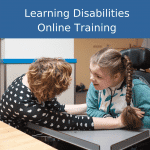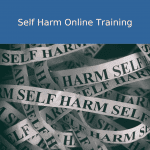Description
Autism Awareness Online Training- CPD Approved
This autism awareness online training course is aimed at care workers who are involved with clients who have Autism. Candidates will gain a better understanding of what Autism is and the effect it has on an individual. The course can follow two different pathways: Child development and Autism Awareness or Adult Mental Health and Autism.
- Developed by professionals
- Accredited by The CPD Accreditation Group
- 100% online, learn at your own time and pace
- Translates into over 100 different languages
- Instant certificate downloaded
Who is autism online course for?
This training is suitable to all staff working within Adult Health and Social Care.
When will I get my certificate?
Once you have successfully passed our course you will be able to download and print your certificate immediately.
As this course has been accredited by the CPD Group your certificate will contain the CPD logo and unique reference number.
Key Points: Autism Awareness Online Training
- Introduction to Autism in Children
- Child Development
- Characteristics of Autism
- Social Interaction
- Social Communication
- Sensory Difficulties
Autism Online Course Structure:
-
Introduction to Autism in Children
- Get an overview of autism and its impact on children.
- Understand the importance of early identification and intervention.
-
Child Development
- Explore typical child development milestones.
- Recognize variations in child development that may indicate autism.
-
Characteristics of Autism
- Dive into the core characteristics of autism, including communication and behavior patterns.
- Learn how to identify these characteristics in children.
-
Social Interaction
- Understand the challenges individuals with autism face in social interactions.
- Explore strategies to support social engagement and inclusion.
-
Social Communication
- Learn about communication difficulties associated with autism.
- Discover effective communication techniques and tools.
-
Sensory Difficulties
- Gain insights into sensory processing challenges in individuals with autism.
- Explore ways to create sensory-friendly environments.
Course Benefits: Autism Awareness
- Enhance your understanding of autism in children.
- Recognize early signs and characteristics of autism.
- Learn strategies to support social interaction and communication.
- Gain insights into sensory sensitivities and how to address them.
- Develop skills to create inclusive and supportive environments.
Who Should Enrol:
- Parents and caregivers of children with autism.
- Teachers and educators.
- Healthcare professionals.
- Anyone interested in promoting autism awareness and understanding.
Top 5 Autism Course FAQs:
- What are the early signs of autism in children?
- Early signs may include limited eye contact, delayed speech, repetitive behaviors, and difficulties with social interaction.
- How can I support a child with autism in their social interactions?
- Providing a structured and predictable environment, using visual supports, and teaching social skills can help support social interactions.
- Are there specific communication tools that work well for children with autism?
- Augmentative and alternative communication (AAC) tools, such as picture exchange systems and communication devices, can be effective for non-verbal individuals.
- What are sensory difficulties in autism, and how can they be managed?
- Sensory difficulties involve heightened or diminished sensitivity to sensory input. Strategies include sensory diets and creating sensory-friendly spaces.
- Is this course suitable for beginners with no prior knowledge of autism?
- Yes, this course is designed for individuals of all levels, including those with no prior knowledge of autism, to promote awareness and understanding.





